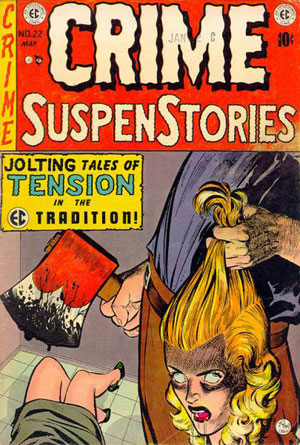A History of Violence
I really enjoyed Maxo Romero’s post last week about the current grim-and-gritty trend in comics. It’s too good to excerpt, so go read it, then come back. I’ll wait for ya, don’t worry.
(clips toenails, prepares Bruschetta, builds a stereo cabinet)
Hey, you’re back!
Well, I agreed with a lot of what Maxo had to say. I haven’t seen “Kick-Ass,” and I probably never will. I’m an official member of the “Mark Millar Licks Goats” anti-fan club — and if he wrote the comic version of “Kick-Ass,” I wasn’t much interested in watching the movie, either. The fact that the movie is a flop is the type of thing that puts the sunshine in my orange juice.
I really am expecting Marvel’s “Heroic Age” and DC’s “Brightest Day,” despite their promises of happier, more fun comics, to very quickly devolve back into random bloodletting, cheap and easy character death/resurrection, and general sociopathy.
I hope that readers will react unhappily to this — getting sold a specific bill of goods and picking up something that’s completely different isn’t a good way to keep business healthy in most industries — but I don’t know that the readers will actually react that way. After all, the “Kick-Ass” comic sold very, very well, and it wasn’t just Millar and Joe Quesada buying extra copies.
The reason we get comics that read like they were written by sociopaths is pretty much because we’ve got sociopaths writing comics and sociopaths running the comics companies. If Mark Millar could convince Joe Quesada that he could sell a series that featured Spider-Man raping a baby, the series would get approval in a hot minute. If Judd Winick could convince Dan DiDio to let him take over “Tiny Titans” and turn it into the angst-and-murderfest that the mainstream “Teen Titans” comic is, there’s nothing that’d stop ’em from making it so.
But of course, as should be obvious to anyone familiar with this blog, I read a lot of horror comics, with a lot of violence, gore, death, and dismemberment. I was a fan of “Blackest Night,” which was chock full o’ death and blood and gore. I’m a fan of other comics — and fiction in general — that features violence, sex, cussin’, outright blasphemy, and worser stuff. Am I a hypocrite? Well, I reckon I am, but not about this.
Context really is the big thing here. And not just context-within-story (which is important, but can be bent like crazy in the service of smacktastic awesomeness), but context-within-character. Does Spider-Man work as a character who’d make a deal with the devil? Does Deadman work as a character who’s not dead? Does Prometheus work as a character who’d let an utter schmuck like Green Arrow get the drop on him?
And context-within-artform, too. I accept levels of violence within horror and alt-superhero comics that are entirely inappropriate within mainstream superhero comics. I can deal with mutilation and child death in comics like “Umbrella Academy” or “Crossed,” but not in anything with “Justice League” in the title. You see a title set in the mainstream Marvel or DC universes, and it should be expected that it comes with an unspoken promise that you won’t get something awash in pointless gore and contempt for the audience. Sure, there are exceptions — you can’t have “Blackest Night” without zombies. You can’t have the Punisher without mass murder. You can’t have “Nextwave” without snarking at comics readers. You can’t have Spider-Man without the death of Gwen Stacy.
I’m not saying DC and Marvel comics should all be kid-friendly. There’s a place for all-ages work and a place for more mature work and a place for work that’s drenched in violence, sex, and adult sensibilities — yes, even within mainstream superhero comics. But creators and publishers have to be mature enough to grasp what context they’re writing for — and far too many either can’t do that or are unwilling to make the effort. They’re not interested in writing stories — they’re interested in inflicting their psychoses on the readers.
I’ve got my problems with Alan Moore, but he writes within context. He can write violent comics like “Watchmen” and “From Hell” and “V for Vendetta,” but he knows that you write differently for “Tom Strong” and “Top 10” (which still had death and violence that made sense within the context of the TV police procedural). He knows who he’s writing for, and he respects the characters, the story, and his readers.
Writing within context is something that mature, competent writers do. Writing any blasted thing because “Oy, it’d be radikal and exxxxxtreme!” is something that immature hacks like Mark Millar, Jeph Loeb, and Brian Michael Bendis do.
Is there a solution for that? Heck if I know. You can’t talk sense to Quesada or DiDio — they both believe they were put on Earth to publish bad comic books. But maybe the only real solution is time — high quality work has a tendency to last — people remember it, recommend it, and help ensure that it sticks around. Low quality work is eventually either forgotten or held up for justified contempt and derision. How well is Rob Liefeld regarded today? That’s what Millar and his cohorts have to look forward to.

